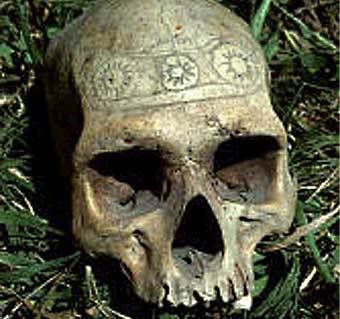deadman_932

Posts: 3094
Joined: May 2006
|
Uh, bacterial introns (Class I and II) are known, just oddly distributed. This is not MY field of specialization, but here's a couple of recent articles that I've read online. The first deals with hypotheses..eh, fairly heavily. Each has references and a list of recent articles that cite it:
-----------------
Edgell, David R.; Marlene Belfort, and David A. Shub (2000) Barriers to Intron Promiscuity in Bacteria. Journal of Bacteriology, October 2000, p. 5281-5289, Vol. 182, No. 19 http://jb.asm.org/cgi/content/full/182/19/5281
-----------------
Tourasse, N. J., Kolsto, A.-B. (2008). Survey of group I and group II introns in 29 sequenced genomes of the Bacillus cereus group: insights into their spread and evolution. Nucleic Acids Res 36: 4529-4548 http://nar.oxfordjournals.org/cgi/content/full/36/14/4529
| Quote | | Group I and group II introns are well-known genetic elements that were discovered >20 years ago. They are catalytic RNAs (ribozymes) that are capable of self-splicing, i.e. excising themselves out of RNA transcripts and ligating their flanking RNA sequences (hereafter referred as exons). They are also mobile elements as they typically encode proteins that allow them to invade genomic sequences (1–10). Introns can spread into cognate (homologous) intron-less DNA sites, a process called homing, or insert into ectopic (novel) genomic locations, a process called transposition, which usually occurs at lower frequencies. Altogether, these elements are found in all three domains of life: group I introns are present in bacteria, bacteriophages and eukaryotes (organellar and nuclear genomes), while group II introns are present in bacteria, archaea and eukaryotic organelles |
-----------------
Lixin Dai and Steven Zimmerly (2002) Compilation and analysis of group II intron insertions in bacterial genomes: evidence for retroelement behavior. Nucleic Acids Research, 30:5, pp. 1091-1102.
http://nar.oxfordjournals.org/cgi/content/full/30/5/1091
ETA: there's some new citations on the intron wiki page here: http://en.wikipedia.org/wiki/Intron , many of which deal with theories of evolutionary origins. Nope, I haven't read them yet, don't have the time at the moment. Hope it helps, though.
--------------
AtBC Award for Thoroughness in the Face of Creationism
|


















